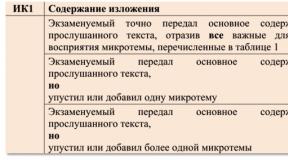Тест на повторение времен группы Present. Present Perfect Tense (упражнения для начинающих) Упражнения на времена группы perfect
Как известно, времена группы Present включают в себя 4 времени глагола (tenses):
- Present Simple Tense (уровень 2, intermediate) СКОРО
- Present Continuous Tense (уровень 2, intermediate) СКОРО
В этом уроке мы рассмотрим, чем отличаются времена группы Present между собой и как они работают в активном залоге.
Упражнение (вводное). Выберите время глагола действия Present Simple, Present Continuous, Present Perfect или Present Perfect Continuous , которое вы бы использовали для перевода на английский язык следующих предложений:
Какая характеристика у глагола-действия в предложениях 1-4?
Вы можете проверить себя –
Обратите внимание, что
Present Simple , Present Continuous and Present Perfect Continuous переводятся на русский язык настоящим временем глагола, а
Present Perfect – прошедшим временем глагола.
Итак, подведем итог:
Present Perfect отвечает на вопрос что уже сделал(а)? — I have watched the cartoon.
Present Continuous отвечает на вопрос что еще делаю? — I am watching the cartoon.
Present Perfect Continuous отвечает на вопрос что делаю в течение …? — I have been watching the cartoon for 20 minutes.
Present Simple отвечает на вопрос что обычно делаю? — I watch cartoons every day.
Времена группы Present (Simple, Continuous, Perfect, Perfect Continuous). Упражнения
Упражнение 1. Сопоставьте время глагола и временное выражение (некоторые используются дважды):
Look! ever, always, never, seldom, often, now, nowadays, usually, at the moment, yet, already, just, recently, lately, every day, on Mondays, tonight, today, always, never, regularly, sometimes, once a year, once a week, Listen! How long…? for, since, these days, still, etc
| Present Simple | Present Continuous | Present Perfect | Present Perfect Continuous |
| always, |
Упражнение 2. Раскройте скобки, чтобы получить Present Simple или Present Perfect.
- I can’t speak about the book. I (not read) it yet.
- Every day I (wind up) my watch at 7 o’clock in the morning.
- It’s Friday. … you (see) him this week?
- It’s a pity, but I (not buy) this dictionary yet.
- As a rule, we (do) many exercises in class.
- He (tell) this joke many times.
- I already (translate) these sentences into French.
- They (have) their English many hours a week.
- She (work) much and usually (get) many good marks.
- We (buy) a new TV set this year.
Упражнение 3. Раскройте скобки, чтобы получить Present Simple, Present Continuous или Present Perfect.
1. I must know what you (talk) about. 2. I (be) in this country for some time. 3. He (admire) you greatly. He (see) the play three times. 4. I (not know) what Harry (tell) you. 5. I want to see how much he (change) since I (see) him last. 6. We (be) to the cinema about twice a week since then. 7. Hello, what you (do) here at this late hour? 8. I (think) you never (do) any harm to people. 9. I always (stay) at home in the evenings. 10. I (hear) you (look) for a new house.
Упражнение 4. Раскройте скобки, чтобы получить Present Simple, Present Continuous, Present Perfect Continuous или Present Perfect.
- Is Andy here? – I don’t know, I … (not see) him today.
- Where … you … (go)? – To the library.
- Would you like … (borrow) this magazine? – No, thanks. I … (read) it before.
- Betty’s bus … (arrive) at 5 o’clock. I must go and meet her at the bus station.
- Have you seen my record book? I … (look) for it all the morning.
- Mike … (talk) to his friend for an hour already.
- More and more forests … (disappear) because of fires nowadays. (Времена, уровень 3)
- How long … you … (work) on this problem?
- The first lesson … (not finish) at 9.45.
Теперь можно преступить к упражнениям на отработку Future Perfect .
Future Perfect Exercises.
Упражнение 1 . Вставьте глагол во времени Future Perfect.
- I ________ a Londoner for five and a half years by next September. (be)
- By Tuesday Jill ________ these novels by O’Henry. (finish)
- Next year is Fred and Kate’s 10th wedding anniversary. They _________ happily married for ten years. (be)
- Molly thinks the film _________ by the time she gets to Fred’s. (to start)
- They _________ the plans by then. (to finish)
- Before his holiday Tom _______ all his money. (to spend)
- The train _________ by the time the couple get to the station. (to leave)
- I __________ dinner by then. (cook)
- I _______my chemistry homework before Jillian comes home. (finish)
- Fernando __________ his operation by August and should be much fitter. (have)
- Before Lisa arrives, I _________ dinner. (finish)
- Johnny ___________ this document by 7pm o’clock this afternoon. (translate)
- Helen _______ this awesome doll by her daughter’s birthday. (make)
- Steven ________ his lesson by tomorrow. (not/learn)
- This test is so arduous, that I _________ it in a day’s time. (not/complete)
- You __________ over half a thousand words when you finish this English book (learn).
- The commission _________ to a definite decision in a month. (come)
- I won’t see Molly on the 1 st of August since I _________ to the South by that time. (go)
Упражнение 2. Ответьте, используя Future Perfect Tense и слова в скобках.
Example: Will Jill be busy at 6pm? (finish essay)
Oh, no, Jilly will have finished her essay by that time.
- Will the couple be at their hotel on Monday? (move to the old beach house)
- Will the committee be discussing the project at 2 o’clock? (make a decision)
- Will the pupils be writing their test at ten? (finish)
- Will Mike’s niece still be a pupil next autumn? (finish school)
- Will Greg still remember Molly in ten years? (forget)
- Will Greg be at home on Tuesday? (leave for China)
Упражнение 3. Составьте предложения во времени Future Perfect .
- have / Jill / she / perfected / will / from / her / by the time / Japanese / comes / Tokyo.
- promotion /Melody / have / By December / will / her / received.
- gets home / Helen’s / cleaned / By the time / relatives / she / will / the house / have.
- to communicate / Steven / he / learned / Will / have / well / Chinese / before / enough / flies to Beijing?
- finishes / have / By the time / twenty / taken / Jillian’s father / that course / he / will / online tests.
Упражнение 4. Translate into English using Future Perfect.
- Майкл закончит этот отчет до завтра.
- Студенты доделают работу к трем часам по полудню.
- К июню мы сдадим сессию.
- Строители построят школу к началу сентября.
- Я напишу заявление к тому времени, как приедет секретарь.
- Поезд уйдет, пока мы доберемся до станции.
- Зоя переведет этот доклад к понедельнику.
- К ночи Меган переведет эту длинную статью.
- Стивен уже уедет в Париж, когда Молли вернется из Конго.
- Зора не дочитает эту дурацкую книгу к концу года.
Ответы к упражнениям на Future Perfect.
Exercise 1 .
1 will have been, 2 will have finished, 3 will have been, 4 will have started, 5 will have finished, 6 will have spent, 7 will have left, 8 will have cooked, 9 will have finished, 10 will have had, 11 will have finished, 12 will have translated, 13 will have made, 14 won’t have learnt / learned, 15 won’t have completed, 16 will have learnt / learned, 17 will have come, 18 will have gone.
Exercise 2.
Possible answers:
- Oh, no, the couple will have moved to the old beach house.
- Oh, no, the committee will have made a decision by then.
- Oh, no, the pupils will have finished their test by 10.
- Oh, no, Mike’s niece will have finished school by next autumn.
- Oh, no, Greg will have forgotten Molly.
- Oh, no, Greg will have left for China by Tuesday.
Exercise 3.
- Jill will have perfected her Japanese by the time she comes from Tokyo.
- By December, Melody will have received her promotion.
- By the time Helen’s relatives gets home, she will have cleaned the house.
- Will Steven have learned Chinese well enough to communicate before he flies to Beijing?
- By the time Jillian’s father finishes that course, he will have taken twenty online tests.
Exercise 4.
Possible sentences.
- Michael will have finished this report by tomorrow.
- The students will have finished the work by 3pm.
- By June, we’ll have passed our exams.
- The builders will have built a school by September.
- I will have written an application by the time the secretary comes.
- The train will have left before we get to the station.
- Zoe will have translated the report by Monday.
- By night, Megan will have translated this long article.
- Steven will have left for Paris when Molly comes back from the Congo.
- Zora won’t have read the stupid book by the end of the year.
Надеюсь, Вы сочли полезными эти Future Perfect упражнения .
После того, как вы изучили Present Perfect Tense (для начинающих) , переходим к упражнениям. 23 упражнения на отработку основных случаев помогут вам хорошенько запомнить, как строится это время, а также отработать основные подсказки для начинающих. В качестве наглядного материала, как всегда, будем пользоваться схемами из книги
Present Perfect Tense (упражнения для начинающих)
I. Утвердительные предложения в Present Perfect Tense
Д3 — это третья форма глагола.
Д3 = Д+ed (для правильных глаголов)
Д3 — искать в таблице неправильных глаголов (если глагол неправильный)
Упражнение 1. Выпишите в два столбика глаголы в третьей форме. В один столбик глаголы, образованные от правильных глаголов, в другой — от неправильных.
Had, met, written, done, cleaned, rained, seen, said, gone, sung, cut, happened, locked, made, lived, asked, liked, slept, told, fallen.
Упражнение 2.
Составьте предложения с выражениями:
- go to bed — ложиться спать
- see a new film — посмотреть новый фильм
- clean the room — убрать комнату
- fall ill — заболеть
- write a poem — написать стихотворение

Упражнение 3. Напишите, что вы сделали.
ПРИМЕР
Now the room is beautiful. — I have cleaned the room.
Теперь комната красивая. — Я убрался в комнате.
- Now the work is done. (Теперь работа сделана). —
- Now dinner is ready. (Обед готов.) —
- Now the door is locked. (Дверь заперта.) —
- Now the story is told. (История рассказана.) —
- Now the song is sung. (Песня спета.) —
Упражнение 4. Вставьте глаголы в Present Perfect Tense.
- Helen _______________(ушла).
- My sister ____________ (заболела).
- My brother ____________(лег спать).
- Father ______________(запер) the door.
- Mother _________ (приготовила) the dinner.
Упражнение 5. Вспомните формы неправильных глаголов, напишите их и проверьте себя по таблице.
- write
- drink
Запомните:
- been to … — был в (но уже вернулся)
- gone to … — уехал в (еще не вернулся)
- She has been to Italy. (= Она была в Италии, но уже вернулась.)
- He has gone to Italy. (= Он уехал в Италию, но еще не вернулся.)
Упражнение 6.
Вставьте
been to/ gone to.
- Jim is on holiday. He’s ……….to France.
- Hello! I’ve just ……………….. to the shops. I’ve bought lots of things.
- Alice isn’t here at the moment. She’s…………to the shops to get a newspaper.
- Tom has ………out. He’ll be back in about an hour.
- Are you going to the bank? — No, I’ve already ……….to the bank.
Упражнение 7. Раскройте скобки и поставьте глаголы в Present Perfect.
- John (write) his name.
- I (draw) a picture.
- The cat (drink) its milk.
- The tree (fall) across the road.
- John (give) his bicycle to his brother.
- You (make) a mistake.
- We (eat) our dinner.
- The train (go).
- I (tell) the truth.
- She (buy) bread.
Упражнение 8.
Ответьте на вопросы утвердительно, употребляя глагол в Present Perfect.
ПРИМЕР. Are the rooms clean? (do) — Yes, Mother has done them.
1. Does she know the song? (learn)
2. Is breakfast ready? (cook)
3. Do you know how tasty the pie is? (eat)
4. Is she at home? (come)
5. Do you know the melody? (hear many times)
6. Can you speak on the subject? (read about it)
7. Is Ann on holiday? (go to Italy)
8. Are you ready with the report? (write it)
9. Can you do this work? (finish it)
Упражнение 9. Ответьте на вопросы, используя слово just — только что и слова, данные в скобках.
ПРИМЕР. Would you like to have something to eat?
(no/thank you/ I / just/ have dinner) — No, thank you. I have just had dinner.
- Have you seen John anywhere? (yes/ I/ just / see/ him)._____________________________
- Has Ann phoned yet? (yes/ she/ just/ phone)____________________________________
- Would you like to go for a walk? (no/ I/ just/ come home).___________________________
Упражнение 10.
Вставьте наречия never*, already*, just*
в нужное место каждого утвердительного предложения (согласно схеме ВЫШЕ) и переведите их.
ПРИМЕР. Jack has washed the dog. —
- Jack has never washed his dog.
- Jack has already washed his dog.
- Jack has just washed his dog.
* * *
Упражнение 11. Ответьте, используя слова already* — уже, just* — только что.
ПРИМЕР. Will you make some sandwiches, please? — But I have already made them.
1. Do the flat, will you? 2. Why don’t you sweep the floor, please? 3. Please, give Peter this dictionary. 4. Will you send a telegram to Mary, please? 5. Write them a letter, please! 6. Don’t forget to phone Mother. 7. Will you show the children your new books, please? 8. Make fresh tea, please! 9. Bring, some more bread from the kitchen, please! 10. Will you wash up the dishes, please!
Упражнение 12.
Сделайте данные предложения отрицательными, используя слово never.
Наречие never* — никогда ставится только в утвердительное предложение.
- Jack has washed the dog.
- Father has cleaned his car.
- Granny has bought me some clothes.
- They have painted their old house.
- My sister has cooked breakfast for the family.
II. Отрицательные и вопросительные предложения в Present Perfect Tense

Упражнение 13. Сделайте предложения отрицательными.
- The cat has eaten fish. 2. I have been to India. 3. She has broken the vase. 4. The train has arrived. 5. It has started to rain. 6. We have left our textbooks at school. 7. The city has changed a lot. 8. You have worked here for a long time. 9. I have slept well. 10. They have gone to bed.
Упражнение 14. Напишите, что еще не сделали это.
ПРИМЕР. I am still doing my homework. — I haven’t done my homework yet.
1. I am still translating the text. —
2. I am still writing the exercise. —
3. I am still cleaning my room. —
4. He is still reading the story. —
5. He is still washing his bike. —
6. They are still discussing the book. —
7. They are still having lunch. —
8. We are still having breakfast. —
9. She is still making sandwiches. —
10. She is still answering the questions.
Упражнение 15.
Составьте предложения с данными словосочетаниями о том, что уже сделано
и что еще не сделано.
- drink coffee
- take the dog for a walk.
- clean the floor
- do the shopping
- wash the dishes
- have breakfast
- water the plants
- cook dinner
- do lessons
- paint the walls
- Already done (уже сделано): I have already drunk coffee.
- Not done yet (еще не сделано): I haven’t taken the dog for a walk yet.
Запомните выражение. Not yet. — Еще нет.
Упражнение 16.
Ответьте на вопросы утвердительно или отрицательно в краткой форме.
ПРИМЕР. Have you been to Sochi? — Yes, I have. (No, I haven’t)
- Have you read «Harry Potter»? —
- Has your friend been to a football match? —
- Have they visited History Museum this year? —
- Have you already learnt to swim? —
- Has your father had a car accident?
Упражнение 17.
Составьте вопросы по образцу, используя слова, данные в скобках. В ответах на вопросы, используйте наречие never
, где возможно.
ПРИМЕР. (you ever / be / to Italy) – Have you ever been to Italy?
- You / ever/ be / to South America?
- You / read / any English books?
- You /live/ in this house all your life?
- How many times / you/ be / in love?
- What’s / the most beautiful country / you/ ever / visit?
- You ever/ speak / to a famous person?
Упражнение 18.
Задайте вопрос к предложению и ответьте на него отрицательно, используя наречие yet.
ПРИМЕР. I have seen this film. — Have you seen this film? — I haven’t seen this film yet.
- The bus has turned to the right. —
- She has put on my scarf. —
- We have been here many times. —
Упражнение 18.1.
Задайте вопрос к предложению и ответьте на него отрицательно, используя парные наречия ever (когда-нибудь)
— never (никогда)
ПРИМЕР. I have seen this film. — Have you ever seen this film? — I have never seen this film.
- I have written my friend a letter. —
- The boy has ridden a horse. —
- She has put on my scarf. —
- The girls have washed all the plates. —
- We have been here. —
Упражнение 19. Задайте вопросы к предложениям.
- I have read the evening newspaper. — What…..
- She has brought five cups. — How many…
- The daughter has dusted the sideboard. — Who….
- You have helped me very much. — How….
- We have finished our work. — What ….
- Father has gone to work. — Where ….. to?
Упражнение 20 . Спросите по-английски, используя Present Perfect Tense
- ссориться — quarrel
- болеть гриппом — have a flu
- дарить цветы — present flowers
- пробовать авокадо — taste avocado
- влюбляться — fall in love
1. Вы когда-нибудь были в Лондоне? 2. Он когда-нибудь рассказывал вам о своей жене? 3. Они когда-нибудь ссорились ? 4. Вы когда-нибудь болели гриппом ? 5. Он когда-нибудь дарил вам цветы ? 6. Вы когда-нибудь летали на самолете?: 7. Вы когда-нибудь видели такую красивую девушку? 8. Вы когда-нибудь учили французский? 9. Вы когда-нибудь пробовали авокадо ? 10. Вы были влюблены когда-нибудь?
Present Perfect Tense. Упражнения на все виды предложений
Упражнение 21. Поставьте глаголы в скобках в Present Perfect Tense.
1. He (not answer) my letter yet.
2. You ever (eat) caviar?
3. She already (become) a student.
4. They (travel) all over the world.
5. How long you (be) here?
6. I saw her in May but I (not see) her this month.
7. My friend (buy) a new car.
8. I (lose) my gloves.
9. I never (ride) a camel.
10. They never (behave) like this before.
Упражнение 22.
Вставьте already, ever, yet, just
в предложения.
1. Have you … been to Africa? 2. Have you finished writing your essay? — I haven’t finished it …. 3. Shall I pay the waiter? — No, I’ve … paid the bill. 4. Have you .. spoken to a famous person? 5. Ann, lay the table. I’ve … cooked dinner. 6. They don’t know what the problem is. They have … arrived. 7. Is it a good film? — Yes, it’s the best I have … seen. 8.The letter hasn’t come … . 9. She has … explained the situation to me. 10. He hasn’t invited me to the party … . 11. Nobody has found the lost dog ….
Упражнение 23. Скажите это по-английски.
- Моя сестра умеет читать. Она уже прочла две книги.
- Ты уже сделал эту работу?
- Он уже ушел.
- Где Виктор? – Я его еще не видел. Я только что пришел домой.
- Ты уже выводил собаку на прогулку (take out)? – Еще нет.
- Я никогда еще не видел такой (such) большой собаки.
Англичане не ограничиваются в своем языке употреблением только настоящего, прошедшего и будущего. Каждое из перечисленных времен имеет несколько вариантов. Так, одна из наиболее сложных групп, но часто используемых, это Perfect, которая порой вызывает затруднения в понимании.
Стилистика английского языка любит конкретику, именно поэтому каждое действие имеет свой личный характер. Чтобы Вам было легче понять, что представляет из себя Perfect, рассмотрим ее с разных сторон.
Времена этой группы, также как и другие ее «братья», могут отражать и настоящее, и прошедшее, и будущее. Очень похожи по названию и стилю времена группы Perfect Continuous.
- Present Perfect — настоящее завершенное время
- Past Perfect — прошедшее завершенное время
- Future Perfect — будущее завершенное время
- Present Perfect Continuous — настоящее завершенное продолженное время
- Past Perfect Continuous — прошедшее завершенное продолженное время
- Future Perfect Continuous — будущее завершенное продолженное время
Образование
В каждом времени используется вспомогательный глагол have (has — для she, he, it) , который не переводится и не несет смысловой нагрузки. Это просто помощник, который обязательно должен быть в предложении. В Past используется вторая форма: had , а в Future образовывается сочетанием will / shall + have.
А вот значение действия передает сказуемое (глагол), который принимает форму V 3 или V ed . Угадывать, когда и что поставить, не придется. Все элементарно просто. Глаголы английского языка могут быть правильные и неправильные. Вторые собраны в таблицу, где и представлены все их формы. Если же вы там не найдете нужного слова, значит, смело добавляем окончание ed.
Для каждого времени есть формулы, которые обязательны для запоминания.
Present Perfect |
Past Perfect |
Future Perfect |
| Утвердительное предложение | ||
have/ has + V 3 (V ed) |
had + V 3 (V ed) |
will have + V 3 (V ed) |
| I have enjoyed | I had enjoyed | I will have enjoyed |
| She has enjoed | She had enjoed | She will have enjoed |
| We have enjoyed | We had enjoyed | We will have enjoyed |
| Отрицательное предложение | ||
have/ has + not + V 3 (V ed) |
had + not + V 3 (V ed) |
will + not + have + V 3 (V ed) |
| I have not enjoyed | I had not enjoyed | I will not have enjoyed |
| She has not enjoed | She had not enjoed | She will not have enjoed |
| We have not enjoyed | We had not enjoyed | We will not have enjoyed |
| Вопросительное предложение | ||
| Have/ Has + S + V 3 (V ed) | Had + S + V 3 (V ed) | Will + S + have + V 3 (V ed) |
| Have I enjoyed? | Had I enjoyed? | Will I have enjoyed? |
| Has she enjoyed? | Had she enjoyed? | Will she have enjoyed? |
| Have we enjoyed? | Had we enjoyed? | Will we have enjoyed? |
Так как вспомогательный глагол выполняет только грамматическую функцию, его можно сократить, чтобы не нагромождать предложение:
I have = I’ve, She has = she’s, he had = he’d, we will = we’ll
have not = haven’t, has not = hasn’t, will not = won’t
Значение
Present Perfect и Past Perfect, а также Future Perfect — все они используются для описания действия, которое уже закончилось к определенному моменту в настоящем, прошедшем или будущем.
- Present Perfect «находясь в настоящем, заглядывает в прошлое», как бы напоминая про уже совершенное действие, которое интересно для дальнейшего разговора. Другими словами, этим временем мы подчеркиваем то, что актуально сейчас, что повлекло за собой события настоящего.
Jim has lost his ticket. So he can’t fly with us. — Джим потерял свой билет. Поэтому он не может лететь с нами.
We have only recieved two letters from him since he came back. — Мы получили только два письма с тех пор, как он вернулся.
- Past Perfect описывает также прошедшие события, которые закончились к определенному моменту в прошлом. Это может быть и время, например, к 5 часам (by 5 o’clock), либо же другое событие: «Ребенок проснулся до того, как пришли гости» — сначала ребенок проснулся (Past Perfect), а потом пришли — Past Simple. Важно отметить, что здесь не подчеркивается очередность, а наоборот, нарушается хронологический порядок: «Я вышел и вспомнил, что оставил книги дома» — оставил и будет Past Perfect.
I had finished the cleaning before he returned. — Я закончил уборку до того, как он вернулся.
The bus hadn’t arrived by 6 o’clock. — Автобус не прибыл к 6 часам.
- Future Perfect показывает также завершенные события, но в будущем. Как и Past Perfect, он может закончиться к определенному событию или времени завтра, на следующей неделе или месяце: «Завтра к 5 часам ребенок уже проснется» или «До того, как гости придут, ребенок уже проснется».
We will have translated the article before the teacher comes. — Мы переведем статью до того, как придет учитель.
The plane will have flown away by the time we get to the airport. — Самолет улетит к тому времени, как мы приедем в аэропорт.
Слова-подсказки
Future Perfect, Past Perfect и Present Perfect почти всегда сопровождаются маркерами, сигнальными словами, которые и помогают узнать эти времена в контексте.
- Для настоящего времени: already, just, lately, ever, never, still, yet, this morning, today, resently, since, for.
- Для прошедшего времени: by .., before, after.
- Для будущего времени: by .., before, after.
Эти времена не сложно понять. И лучшими помощниками в этом нехитром деле будут упражнения на Past Perfect и Present Perfect, которые заставят вас задуматься над каждым случаем, проанализировать и сравнить.
Итак, надеюсь, к концу статьи у вас сложилась целостная картина о презент перфект и паст перфект, об их назначении и употреблении. Конечно, здесь мы рассмотрели общую информацию о временах группы Perfect. Но каждый случай необходимо изучить в отдельности. На нашем сайте вы не только найдете все правила, но и сможете отработать в упражнениях. Постигайте английский постепенно, от слова к слову, от предложения и предложению, и не забывайте расширять свой лексический запас.
Упражнения
- By the time you recieve this letter I (finish) my final exams.
- He (write) 3 reports on an accident when his mother called.
- I don’t think I (do) these exercises by 3 o’clock.
- He was looking forward to a good meal at home, but Jill (go) out.
- Your house looks nice. You (paint ) it?
- After we (discuss) all details on the phone I wrote a letter about it.
- Before my 18th birthday I (not/be) out of England.
- It is the easiest job I (ever/have) .
- I fell better after I (take) the medicine.
- I (not/be) there for ages.
- She (tidy up) the flat before he comes.
- I was late. The teacher already (give) a quiz when I came into the classroom.
- The workers (ship) the goods before the telegram arrives.
- I am here for an hour. Where you (be) ?
- When I got to the station, the 9 o’clock train (already/leave) .
1. will have finished
3. will have done
5. Have you painted
6. had discussed
7. hadn’t been
8. have ever had
10. haven’t been
11. will have tidied up
12. had already given
13. will have shipped
14. have you been
Сегодня нам предстоит выполнить 12 упражнений на , поэтому освежите в памяти схему его образования.
Упражнения на Present Perfect помогут вам
- закрепить английского глагола
- вспомнить
- отработать употребление for и since, a также already, never и yet.
- отработать построение утвердительных, отрицательных и вопросительных предложений в Present Perfect Tense
Наличие ответов к упражнениям поможет вам проконтролировать собственные результаты или результаты ваших учеников.
Форма глагола в Present Perfect Tense. Exercises.
Упражнение 1. Заполните таблицу, используя следующие формы глагола. Complete the table with the base forms and the past participles. Use the words in the box.
Lose, taken, swim, bought, do, written, run, eaten, take, won, write, done, buy, lost, win, run, eat, swum
|
base form |
past simple |
past participle |
Утвердительные предложения в Present Perfect Tense. Упражнения.
Упражнение 2. Поставьте глаголы в скобках в Present Perfect.
- He _____ (finish) training.
- She _____ (score) twenty points in the match.
- We _____ (watch) all the Champions League matches this season.
- That"s amazing! She _____ (run) fifteen kilometers this morning!
- She _____ (buy) some really nice rollerblades!
- Oh, no! I _____ (lose) my money!
- My mum _____ (write) shopping list. It"s on the kitchen table.
- Dad, you _____ (eat) my biscuit!
- I’m tired. I _____ (watch) three X-Files videos.
- Hurry up! They _____ (start) the film!
- Mary _____ (study) hard this year, so she"ll pass her exams.
- Oh no! She _____ (drop) the plate!
- The garden is very green. It _____ (rain) a lot this month.
- These are my favourite trousers. I _____ (have) them for five years.
- Tom"s my best friend. I _____ (know) him for three years.
- They _____ (live) in Miami for two years.
- Jo has earache. He _____ (have) it since 7 o"clock.
- Brad _____ (live) in Chicago since 1998.
Отрицательные предложения в Present Perfect Simple. Упражнения.
Упражнение 3. Поставьте глаголы в скобках в Present Perfect negative.
- I _____ (not clean) my football boots.
- They _____ (not start) their meal.
- I _____ (not do) my homework.
- He _____ (not win) all his matches this year.
- My brother and I _____ (not see) any films this week.
- It"s my birthday party today. I _____ (not invite) many people.
- He _____ (not wash) his hands. They"re very dirty.
- Mum"s really angry. We _____ (not tidy) our room!
- I can"t play with my friends this evening. I _____ (not finish) my homework.
- I _____ (not visit) New York for three years.
- Where"s Alison? We _____ (not see) her since yesterday.
- Dad _____ (not take) a holiday since last August.
- John _____ (not play) the violin since he was school.
For или since?
Упражнение 4. В письме есть 4 ошибки на использование for и since. Найдите и исправьте их. These are some sentences from Nigel’s letter home from Africa. He has made four mistakes in using ‘for’ and ‘since’. Correct his mistakes.
Dear Mum and Dad,
I"ve lived in Africa since two weeks and I love it! Africa is beautiful! I haven’t travelled to any faraway place for last summer. I’m so happy now!
I’ve already seen Mr. Rambler. He is working for WWF here and taking photos of wild animals. I haven’t seen any lions yet. I think I’ll see them later.
Thank you for the trip. I’ve dreamed of Kenya for my childhood. I haven’t seen you since ages! I miss you so much!
Упражнение 5. Дополните предложения словами for или since. Complete the sentences. Use for or since.
- I"ve lived in Washington _____ 1997.
- Ben has studied English _____ three years.
- They haven"t visited their grandparents _____ months.
- Julie"s ill. She"s been in bed _____ Tuesday.
- My dad has had his car_____ sixteen.
- It"s been ten years_____ we moved to Oxford.
Упражнение 6. Пользуясь опорными словами, a также словами for и since составьте предложения в Present Perfect Simple.
- Kate/be/in bed/a long time.
- She / not eat / anything / this morning.
- She / not see / her friends / a week.
- She / stay / at home / Tuesday.
- She / have / a red nose / three days.
- She / not play / basketball / last weekend.
- She / not do / any school work / Monday.
Вопросительные предложения в Present Perfect Tense. Упражнения.
Упражнение 7. Zork и Zena – инопланетяне, впервые прилетевшие на Землю. Они составили список дел. Напишите вопросы и ответы о том, что они уже сделали, а чего пока нет.
Zork (eat) a hamburger?
Has Zork eaten a hamburger?
Zork and Zena (drink) a cola?
Have Zork and Zena drunk a cola?
No, they haven"t.

- Zena (see) a film?
- Zork and Zena (speak) English?
- Zork (swim) in the sea?
- Zena (visit) the Acropolis?
- Zork and Zena (drive) a car?
Упражнение 8. Напишите вопросы в Present Perfect, используя глаголы в скобках. Дайте правдивые ответы.
(eat Italian food)
— Have you ever eaten Italian food?
— Lots of times.
— ______________________
- ______________________
- ______________________
- ______________________
3 (have a dream)
- ______________________
- ______________________
- ______________________
- ______________________
5 (go to a concert)
- ______________________
- ______________________
Упражнение 9. Дополните диалог вопросами и ответами в Present Perfect.
Reporter: (you do) Have you done a lot of training this year?
Trish: Yes, I have. I have trained six times a week all year.
Reporter: Who ______________ (1 you train) with?
Trish: With my coach, and the team.
Reporter: Where ______________ (2 you play) this year?
Trish: Mostly in Britain. But we"ve also travelled to Holland.
Reporter: ______________ (3 you win) many matches?
Trish: Yes, we (4) ______________ .
Reporter: And how many matches ______________ (5 you lose)?
Trish: Only three.
Reporter: That"s great. ______________ (6 you have) any injuries?
Trish: No, I ______________ (7) .
Reporter: Thanks, Trish, and good luck.
Упражнение 10. Напишите вопросы с How long. Дополните ответы, используя for или since. Write questions with How long. Complete the answers with for or since.
I live in London.
How long have you lived in London?
For three years.
1 He"s a teacher.
____________________
September.
2 My parents work in a shop.
____________________
1992.
3 My sister knows Robbie Williams.
____________________
Six months.
4 We"ve got a new car.
____________________
Two weeks.
Комплексные упражнения на использование Present Perfect Simple.
Упражнение 11. Заполните письмо Джейн глаголами в Present Perfect. Complete Jane"s letter to her American friend. Use the Present Perfect Tense.
I _____ (1 not have) a letter from you for a long time. _____ (2 you lose) my address? I bought the new Steps CD at the weekend. I _____ (3 already listen) to it. _____ (4 you hear) it yet? It’s brilliant. There’s a new video too, but I _____ (5 not see) it yet.
School is going OK. I _____ (6 just finish) some exams, but the holidays _____ (7 not start) yet. We’re going to Ireland. I _____ (8 never be) there.
Write soon with your news.
Упражнение 12. Ник готовится к путешествию. Он собирается навестить бабушку.
Ознакомьтесь со списком дел, которые ник планирует сделать до отъезда. Напишите, что он уже сделал, а что нет. Используйте alreadyи yet. Nick is getting ready to travel. He is going to visit his Granny. Read the list of things he must do before travelling. Write what he has done and what he hasn’t done.
THINGS TO DO
- to pack suitcases (+)
- to water flowers (+)
- to take my library book back
- to say ‘good-bye’ to Nigel (+)
- to clean my shoes
- to call Granny (+)
- to buy some food and drinks (+)
- to clean the parrot’s cage
- to change the water for the fish
- to buy a present for Granny (+)
Упражнение 1
|
base form |
past simple |
past participle |
|
lose swim take write |
bought lost swam took wrote |
bought done eaten lost swum taken written |
Упражнение 2
1 has finished, 2 has scored, 3 have watched, 4 has run, 5 has bought, 6 have lost, 7 has written, 8 have eaten, 9 have watched, 10 have started, 11 has studied, 12 has dropped, 13 has rained, 14 have had, 15 have known, 16 have lived, 17 has had, 18 has lived.
Упражнение 3
1 have not cleaned, 2 haven’t started, 3 have not done, 4 hasn’t won, 5 haven’t seen, 6 haven’t invited, 7 has not washed, 8 haven’t tidied, 9 haven’t finished, 10 have not visited, 11 haven’t seen, 12 hasn’t taken, 13 has not played.
Упражнение 4.
- for two weeks
- since last summer
- since my childhood
- for ages
Упражнение 5
1 since, 2 for, 3 for, 4 since, 5 since, 6 since
Упражнение 6.
- Kate has been in bed for a long time.
- She hasn’t eaten anything since this morning.
- She hasn’t seen her friends for a week.
- She has stayed at home since Tuesday.
- She has had a red nose for three days.
- She has not played basketball since last week.
- She has not done any school work since Monday.
Упражнение 7.
- Has Zena seen a film? Yes, she has.
- Have Zork and Zena spoken English? Yes, they have.
- Has Zork swum in the sea? No, he hasn’t.
- Has Zena visited the Acropolis? Yes, she has.
- Have Zork and Zena driven a car? No, they haven’t.
Упражнение 8.
Have you ever…
- skied?
- won money?
- had a dream?
- broken a leg?
- gone to a concert?
Ответы Ваши собственные.
Упражнение 9.
1 have you trained, 2 have you played, 3 have you won, 4 have, 5 have you lost, 6 have you had, 7 haven’t.
Упражнение 10.
- How long has he been a teacher? He has been a teacher since September.
- How long have they worked in a shop? They have worked in a shop since 1992.
- How long has she known Robbie Williams? She has known him for six month.
- How long have you got a new car. We have got a new car for two weeks.
Упражнение 11.
1 haven’t had, 2 have you lost, 3 have already listened, 4 have you heard 5 haven’t seen, 6 have just finished, 7 haven’t started, 8 have never been
Упражнение 12
Nick has already packed the suitcases (+)
Nick has already watered flowers (+)
Nick hasn’t taken his library book back yet.
Nick has already said ‘good-bye’ to Nigel (+)
Nick hasn’t cleaned his shoes yet.
Nick has already called his Granny (+)
Nick has already bought some food and drinks (+)
Nick hasn’t cleaned the parrot’s cage yet.
Nick hasn’t changed the water for the fish yet.
Nick has already bought a present for his Granny (+)
Надеюсь, упражнения на отработку английского времени Present Perfect Simple понравились вам и оказались полезными.



















